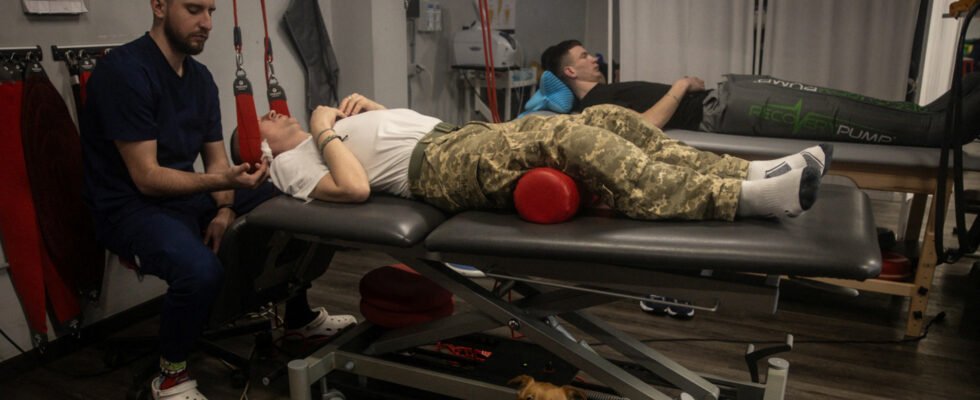Nicolas Tonev (special correspondent in Irpine) / Photo credits: Chris McGrath / GETTY IMAGES EUROPE / Getty Images via AFP (Illustration)
modified to
2:26 p.m., February 18, 2024
A few days before the two-year anniversary of the start of the Russian invasion of Ukraine, Russia claims full control of the town of Avdiivka. A symbolic victory for Russia, especially since on the Ukrainian side, ammunition was starting to run out and tens of thousands of soldiers were injured. Europe 1 went to Irpine, where they are taken care of in specialized centers.
Russia claims full control of Avdiivka in eastern Ukraine. While 34,000 inhabitants lived there before the war, there were only 900 a few days ago. The fall of this city is a symbolic victory for Moscow. The scene of intense fighting in recent weeks, ammunition was lacking and Volodymyr Zelensky said he wanted to save as many lives as possible. A few days before the second anniversary of the war, tens of thousands of soldiers are now far from the front. Injured, they are taken care of in specialized centers, such as in Irpine, where Europe 1 went.
First the cane, then the limp of the prosthesis in the right leg. Captain Nicolas Melnyk grits his teeth. “I lost my leg in the offensive on Robotyne. I am the commander of a Bradley armored company,” he explains to Europe 1.
“I want to get up, I want to walk”
Ivan, Nicolas’s physiotherapist, observes him, avoids falls, encourages him, motivates him. “I observe their behavior. They no longer have energy, but they know what they want to do and what their objective is,” explains the physiotherapist. “Our army told me that I was completely finished. I said no, I want to get up, I want to walk,” Nicolas continues.
Wounded soldiers are cared for in a specialized center in Irpine.
All injured people are welcome, except those with serious post-traumatic disorders who can be dangerous for others, according to Lessia, the manager. “We take psychologically stable men, because there is a collective here with rules and therefore those who have disorders and who are not doing well are taken care of separately, under surveillance.”
At the end of the session, music also relieves pain. Many patients are waiting for modern custom-made prostheses, which can cost up to 30,000 euros.
